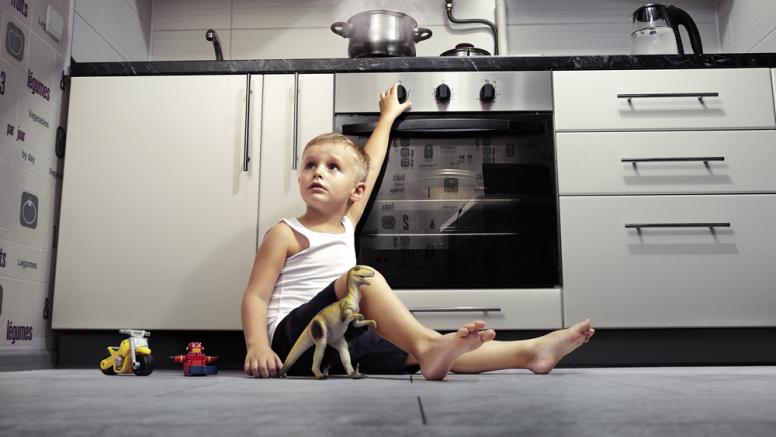10 Practical Tips for How to Use Gas Safely at Home

Gas is a clean, convenient energy source for households in Australia. We use gas for everything from heating and hot water to cooking and appliances. While gas is a very safe way to power your household needs, like electricity, it comes with dangers if not handled properly. Fortunately, it’s not too difficult to minimise the risks of using gas at home.
Follow these strategies to stay safe with gas in your household.
1. Pay attention to warning signs
Familiarise yourself with warning signs of gas faults so you can switch off and move away quickly in case of a fault. Watch out for lazy yellow or orange flames (as opposed to blue ones), condensation in the room, and soot stains on gas appliances. The smell of rotten eggs, due to chemicals added to odorless natural gas, is another sign of a leak or fault.
If you feel dizzy and nauseous, or you have a headache and difficulty breathing, there might be a leak or fault you’re not aware of. If you suspect a fault, switch off at the cylinder or meter and call a licensed gasfitter.
2. Address leaks quickly
Address leaks as soon as possible by switching off the gas at the cylinder or meter, and opening doors and windows to ventilate the space. Make sure there aren’t any naked flames and don’t light candles, cigarettes, or matches. Turn off all appliances, including electrical ones, and switch off your pilot lights. Get a licensed gasfitter to check things out.
3. Maintain your gas system and appliances
Keep your gas system and appliances well maintained. Follow the manufacturer’s instructions to keep your appliances in good shape, and keep rubbish and detritus away from piping and appliances. If you’re in a rental property, ask your landlord about setting up a gas system maintenance plan if they don’t already have one in place.
4. Install a gas alarm
Make sure your gas alarm is in good condition, and have one installed if you don’t have one in your household. Audible gas alarms or carbon monoxide alarms work like smoke alarms. They detect leaks and alert you to leaking appliances and/or piping.
5. Keep children away
Keep children away from gas piping and appliances in and outside the home. Supervise children around kitchen appliances such as stoves and heaters.
6. Follow the manufacturer’s instructions
Always use appliances for their intended purposes only, and follow the manufacturer’s instructions for operating them, whether it’s a heater, oven, or stove. For example, avoid using your outdoor barbeque indoors, or using your gas oven or cooker to heat a space. By utilising appliances only for their intended purpose and maintaining them according to the manufacturer’s guidelines, you’ll reduce the risk of injury and get a longer working life out of the product as well.
7. Allow room for ventilation
Allow enough room around and above gas appliances to let them burn correctly. Gas cookers and stovetops should be clear of combustible surfaces and liquids, in accordance with any state or territory regulations that might apply. For example, you might need to keep range hoods a sufficient distance above your stovetop, and ensure exhaust fans are installed at least a given distance above the stove. Burners might need to have sufficient clearance distance away from walls and surfaces. In addition, keep air vents clear, and open a window or two if necessary.
8. Stay safe when barbecuing with gas
Each time, spray soapy water on your gas connections or hoses before you use your barbeque. If there’s a leak, you’ll see bubbles at the source. Clear the area around your barbeque of combustible materials such as kindling, paper, and dry garden matter. Keep your barbeque well maintained and clean it after each use to remove fat and oil build-up. Always use your barbeque outdoors in open space away from grass or overhanging branches.
9. Using and storing gas cylinders
Have your gas cylinder tested by a qualified professional at least once every 10 years. Keep gas cylinders upright and stored away from direct sunlight, and away from flammable materials. Regularly check for cracked or damaged hoses and replace these immediately.
10. Use only licensed gasfitters
Like electricity, working with gas requires specialist knowledge. Leave repair and maintenance work to the experts. Always have a licensed gasfitter do installation and repair work, no matter how small the job appears to be. It’s easy to make a simple mistake, and with gas, a simple mistake could be all that’s needed for a serious accident.
Gas is widely used in Australian households for cooking and heating, so it’s vital to learn how to use this invaluable everyday form of energy safely at home. Be aware of common risks, stay alert around gas appliances, and get expert help from licensed gasfitters as required.
Looking to switch gas providers?
Check out Click Energy to get a quote or make the switch online today.















